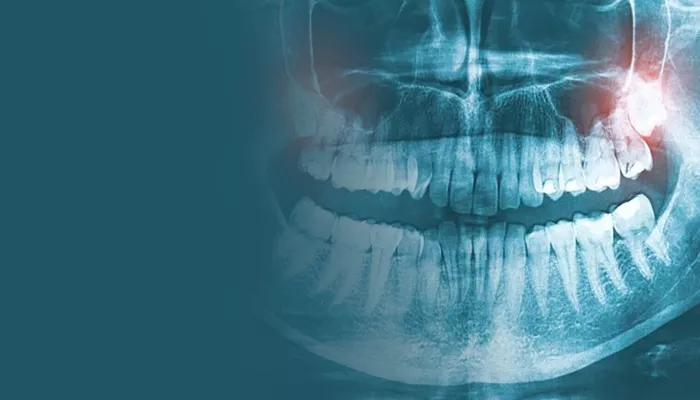Wisdom teeth, also known as third molars, often cause various dental issues. One common problem is sinus pressure. This pressure can lead to discomfort, headaches, and even difficulty breathing.
Understanding the relationship between wisdom teeth and sinus pressure is essential for effective relief. In this article, we will explore the causes of sinus pressure related to wisdom teeth and provide detailed methods to relieve it.
What Is Sinus Pressure?
Sinus pressure occurs when the sinus cavities become inflamed or blocked. This inflammation can lead to a feeling of fullness or pressure in the face, particularly around the cheeks, forehead, and eyes. Other symptoms may include:
- Nasal congestion
- Headaches
- Facial pain
- Reduced sense of smell
- Ear pressure
How Wisdom Teeth Affect Sinus Pressure
Wisdom teeth are located at the back of the mouth, often near the maxillary sinus, which is the largest sinus cavity. When wisdom teeth become impacted or infected, they can cause inflammation in the surrounding tissues. This inflammation can spread to the sinus cavity, leading to increased sinus pressure.
SEE ALSO: Why Are Some People Born Without Wisdom Teeth
Common Symptoms of Sinus Pressure from Wisdom Teeth
When wisdom teeth contribute to sinus pressure, you may experience:
Pain in the upper jaw
Pressure or fullness in the cheeks
Headaches
Nasal congestion
Tooth pain in the upper molars
If you notice these symptoms, it is essential to address the underlying issue.
Methods to Relieve Sinus Pressure
1. Over-the-Counter Medications
Pain Relievers
Over-the-counter (OTC) pain relievers can help alleviate sinus pressure and discomfort. Common options include:
Ibuprofen (Advil, Motrin): This non-steroidal anti-inflammatory drug (NSAID) can reduce pain and inflammation.
Acetaminophen (Tylenol): This is another option for pain relief, though it does not reduce inflammation.
Always follow the recommended dosage on the packaging or as advised by your dentist.
Decongestants
Decongestants can help relieve nasal congestion and sinus pressure.
They work by shrinking swollen blood vessels in the nasal passages.
Common decongestants include:
Pseudoephedrine (Sudafed): This oral medication can help reduce sinus pressure.
Phenylephrine: Available in nasal sprays or tablets, it can provide quick relief.
Be cautious with decongestants, especially if you have high blood pressure or other health conditions. Consult your healthcare provider if you have concerns.
2. Nasal Irrigation
Nasal irrigation involves flushing out the nasal passages with a saline solution. This method can help relieve sinus pressure and congestion. Here’s how to do it:
Using a Neti Pot
Prepare the Solution: Mix distilled water with a saline solution or use pre-packaged saline.
Fill the Neti Pot: Pour the solution into the neti pot.
Tilt Your Head: Lean over a sink and tilt your head to one side.
Pour the Solution: Insert the spout of the neti pot into the upper nostril and gently pour the solution.
Let It Drain: Allow the solution to flow through your nasal passages and out the other nostril. Repeat on the other side.
Benefits of Nasal Irrigation
- Clears mucus and allergens
- Reduces inflammation
- Provides immediate relief from sinus pressure
3. Warm Compresses
Applying a warm compress can help alleviate sinus pressure and pain.
Here’s how to do it:
Prepare the Compress: Soak a clean cloth in warm water and wring it out.
Apply to the Face: Place the warm cloth over your sinuses, focusing on the forehead, cheeks, and nose.
Relax: Leave the compress on for 10-15 minutes. Repeat several times a day as needed.
4. Steam Inhalation
Steam inhalation can help open up the sinuses and relieve pressure.
Here’s how to do it:
Boil Water: Heat water in a pot until it steams.
Create a Tent: Drape a towel over your head and lean over the pot, creating a tent.
Inhale the Steam: Breathe in the steam deeply for 10-15 minutes. Be cautious to avoid burns.
5. Stay Hydrated
Drinking plenty of fluids is essential for relieving sinus pressure.
Hydration helps thin mucus, making it easier to drain from the sinuses.
Aim for at least 8-10 glasses of water a day. Herbal teas and broths can also be beneficial.
6. Avoid Allergens and Irritants
If you have allergies, avoiding triggers can help reduce sinus pressure.
Common allergens include:
- Pollen
- Dust mites
- Pet dander
- Mold
Additionally, avoid smoking and exposure to secondhand smoke, as these can irritate the nasal passages.
7. Elevate Your Head While Sleeping
Sleeping with your head elevated can help reduce sinus pressure. Use an extra pillow or a wedge pillow to keep your head raised. This position encourages drainage and can provide relief.
Dental Treatment Options
Wisdom Tooth Extraction
If your wisdom teeth are impacted or causing significant sinus pressure, your dentist may recommend extraction. This procedure can alleviate pressure and prevent further complications. Here’s what to expect:
Consultation: Your dentist will evaluate your situation and discuss the extraction process.
Anesthesia: Local or general anesthesia will be administered to ensure your comfort during the procedure.
Recovery: Follow post-operative care instructions to promote healing and reduce inflammation.
Antibiotics
If an infection is present, your dentist may prescribe antibiotics. These medications can help eliminate the infection and reduce sinus pressure. Be sure to complete the full course of antibiotics as directed.
Conclusion
Sinus pressure caused by wisdom teeth can be uncomfortable and disruptive. Understanding the relationship between these two issues is crucial for effective relief. By utilizing a combination of over-the-counter medications, nasal irrigation, warm compresses, and lifestyle adjustments, you can alleviate sinus pressure and improve your quality of life. If symptoms persist or worsen, consult your dentist for further evaluation and treatment options.

